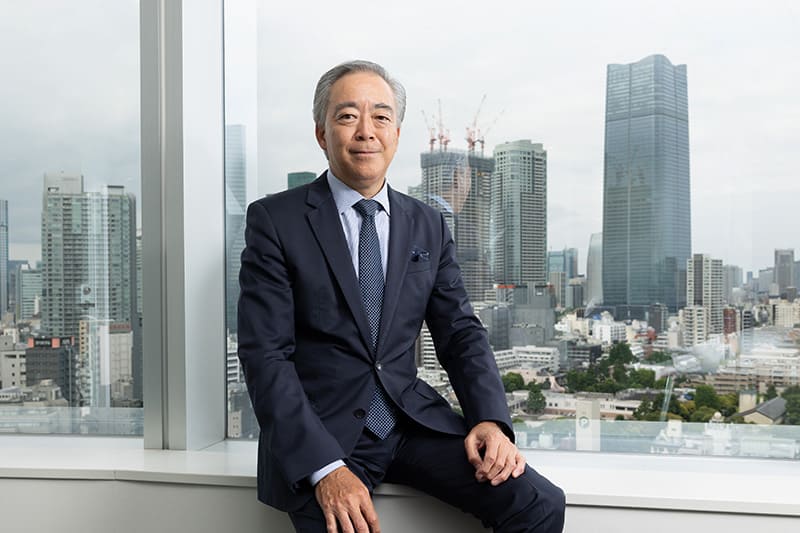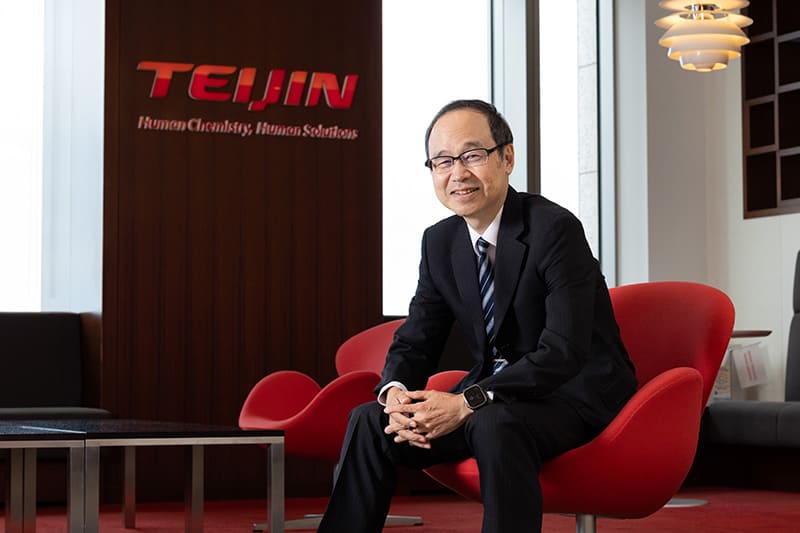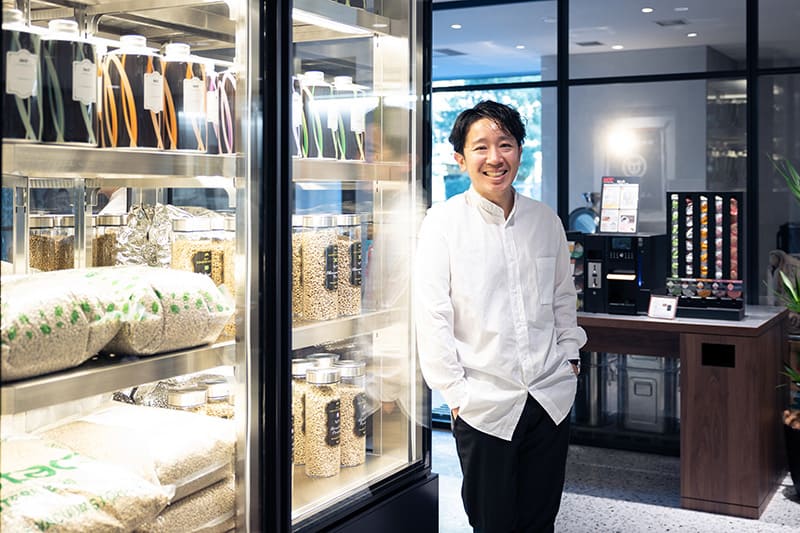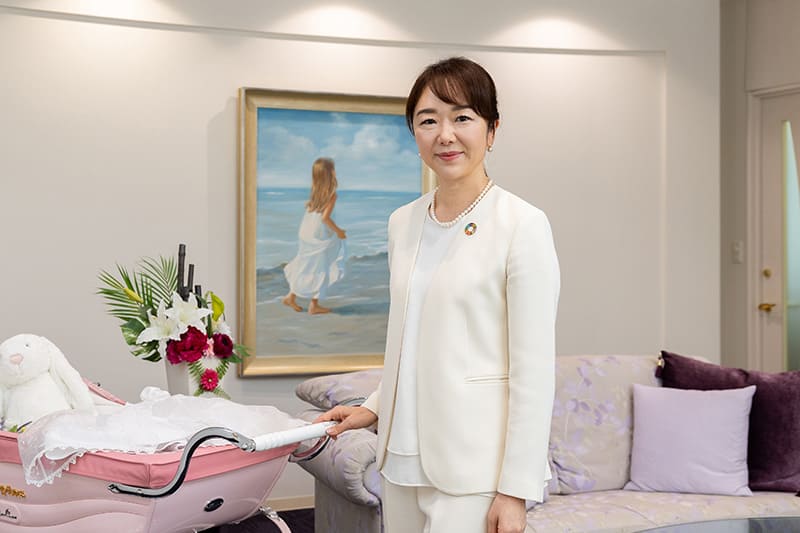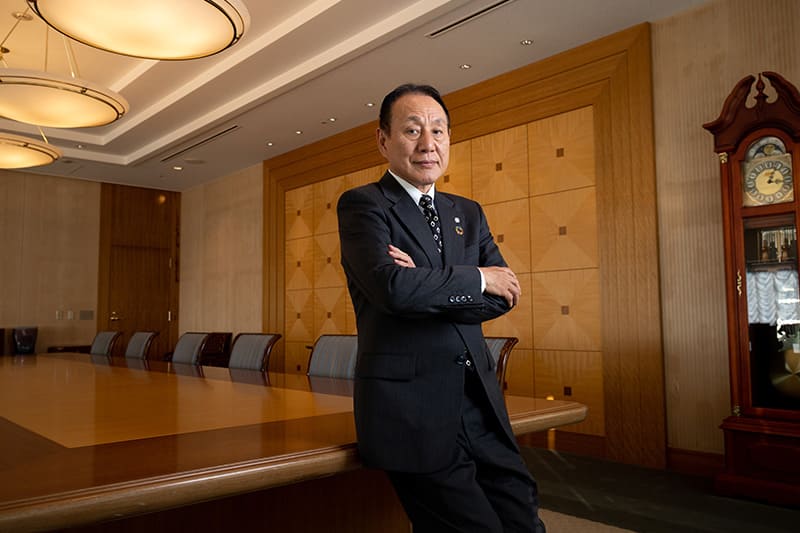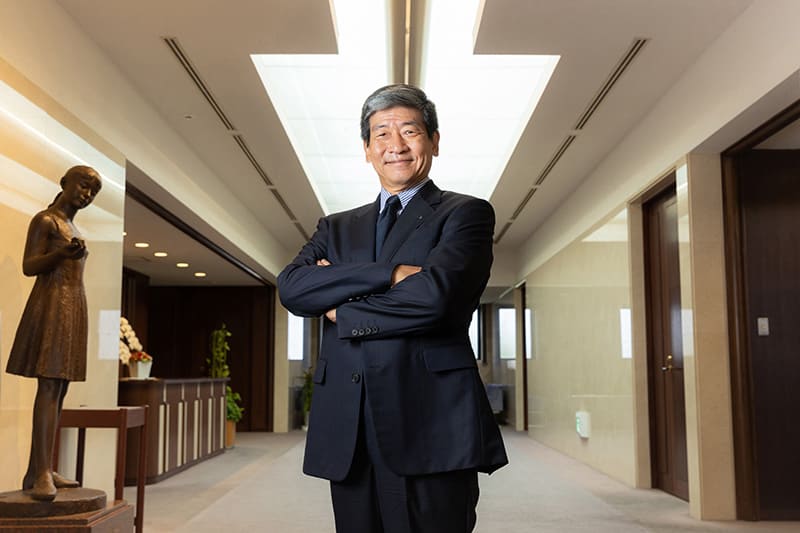March 24, 2023
Mitsubishi Estate nurtures Marunouchi with new values
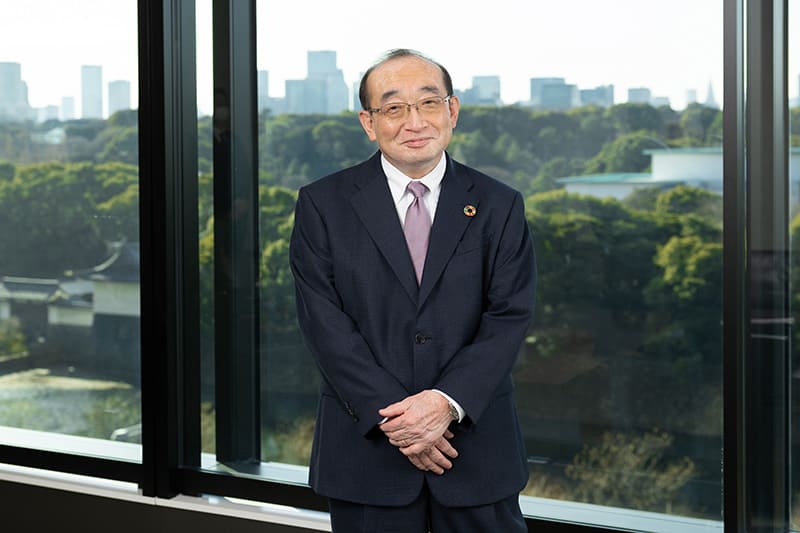
Marunouchi is a well-known business district in the heart of Japan’s capital. But not many people know that the land was a vast expanse of wild plain more than a century ago.
The history of the business zone between Tokyo Station and the Imperial Palace started in 1890 when, at the request of the Meiji government, the Mitsubishi group decided to buy a 350,000-square-meter site owned by the Army Ministry and make it the country’s first business center, one that could vie with those in London and New York.
“We had a goal of building a business district that would lead Japan in the future,” said Mitsubishi Estate Co. President and CEO Junichi Yoshida. “But our work does not end when we create a town. We need to nurture it with people living, working and visiting there, while taking care of the historic background.”
Mitsubishi Estate is one of the biggest land developers in Japan, notably owning about 30 buildings in the Marunouchi district, which comprises the Marunouchi area proper and the surrounding areas of Otemachi and Yurakucho.
Yoshida said the most important part of developing a town is to cooperate with the original landowners, the central and local governments, and the many other people involved. “We have been doing it for many years,” he said.
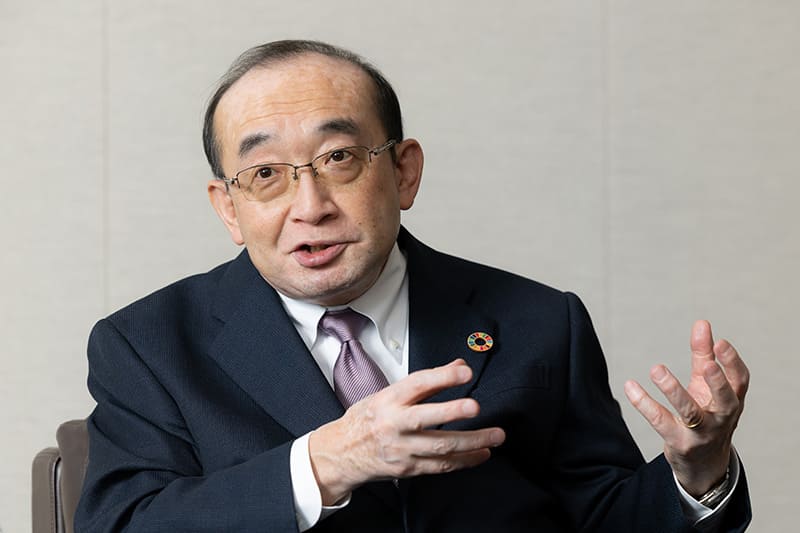
When the Japanese economy entered the postwar growth period starting in the 1950s, the real estate developer kicked off a wide-scale project in the Marunouchi district, demolishing 30 old buildings to construct 13 larger ones over the following decade. The company also started to redevelop a wider area, including the north side of Tokyo Station, the Akasaka, Aoyama and Ikebukuro districts elsewhere in Tokyo, and the Minatomirai area in Yokohama. By the middle of the 1970s, Marunouchi was thriving as one of the largest business centers in the world.
The story of Marunouchi continued. In the 1990s, Mitsubishi Estate decided to renew aging concrete buildings and turn the plain business district into a more sophisticated business center where downtown workers could interact with others – residents, shoppers, and travelers. Above all, it reconstructed the old 31-meter-tall landmark Marunouchi Building into a 180-meter tower in 2002, with shopping, restaurants and interactive zones added to the office floors. It also constructed the Shin-Marunouchi Building, whose height is nearly 200 meters, and a series of others. In 2007, the Peninsula Tokyo luxury hotel opened in the district. As a result, the numbers of stores and weekend pedestrians almost tripled in 2018, from the days before the Marunouchi Building was renovated.
Developing a town or a community is not easy, especially because it involves a vast variety of stakeholder interests. Yoshida said what is the most important is to think about what can be handed over to our descendants.
“We need to discuss what should be left for our future generations. We should renew the characteristics in each area and cultivate them further in the discussions,” the president said, adding that the government has the role of leading such dialogues.
In the case of the overall Marunouchi district, its components – Otemachi, Marunouchi and Yurakucho – have a common role in that they represent the whole country. But the land developer knows each area also has its own color.
For example, Otemachi has historically been the national financial center, where the headquarters of Japan’s megabanks are located. There is also a membership community for financial technology startups, called Finolab. The Tokyo Metropolitan Government also sees Otemachi as one of Japan’s international financial centers, together with the Nihonbashi and Kabutocho districts, where the Tokyo Stock Exchange and securities houses are based.
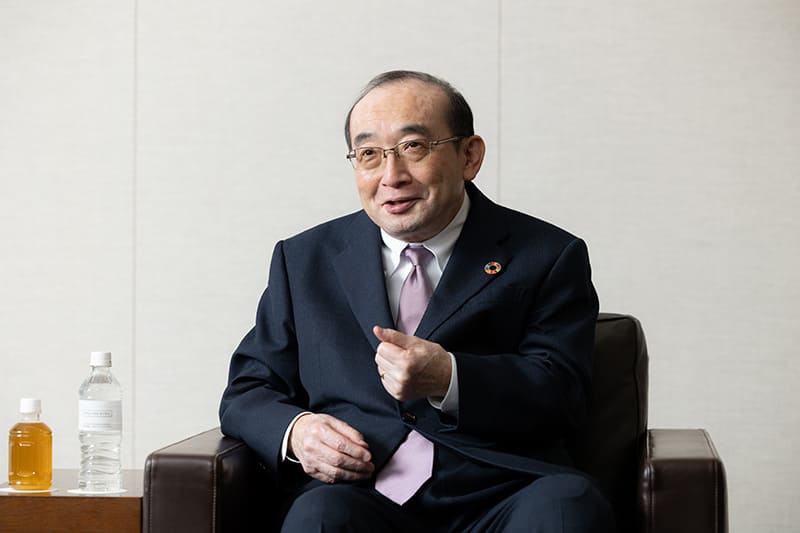
Meanwhile Marunouchi, facing Tokyo Station and extending toward the Imperial Palace, is the gateway to the capital, Yoshida said. The station’s more than century-old facade of red brick and stone was revived as a historic landmark when East Japan Railway Co. renovated the major commuter hub in 2012. It is also a place where leading Japanese companies with long histories have their home bases.
Yurakucho has a more cultural flavor. The area is near the luxurious Ginza and Hibiya shopping streets and where the Tokyo International Forum hosts conventions and art events and the Imperial Theatre attracts theatergoers. “Historically, the area has had an element of culture, entertainment and the arts. It is a place that we need to make attractive to not only businesspeople but also other people, including artists,” Yoshida said.
The real estate developer also aims to promote digital transformation in the district. In this project, applications it develops provide Marunouchi visitors not only with information about the commercial complexes and accommodation facilities that are owned by the company in the area but also other information, all based on visitors’ location and payment data. “We should keep on searching for cutting-edge functions and the attractiveness of a city,” Yoshida said.
While Mitsubishi Estate’s slogan is “A Love for People, A Love for the City,” the president said it needs to increase its “love for the planet” as well. He added that in nurturing a community, integrity and alliances are key to creating new values. Mitsubishi Estate has already been working with local committees consisting of original landowners to discuss how to redevelop and manage their towns. For event projects, the developer allies with companies such as the arts ticket seller Pia Corp. It also cooperates with academics such as the University of Tokyo, Tokyo Medical and Dental University, and Tokyo University of the Arts. The art university holds an annual event for music, painting and sculpture at halls in the Marunouchi Building. Also, music students and professional musicians hold small free classical concerts during late spring’s Golden Week in spaces and streets in the Marunouchi area.
Inside its own office, Mitsubishi Estate four years ago created a floor without any walls to facilitate interaction among its workers. It also encourages young workers to propose new business ideas.
Yoshida said he hopes the Marunouchi district, including Otemachi and Yurakucho, will play the role of Japan’s front hallway. “Like Fifth Avenue in New York or Bond Street in London, I hope the Marunouchi district will grow as a place that people around the world come to know and are attracted to,” he said.
Naonori Kimura
Industrial Growth Platform Inc. (IGPI) Partner
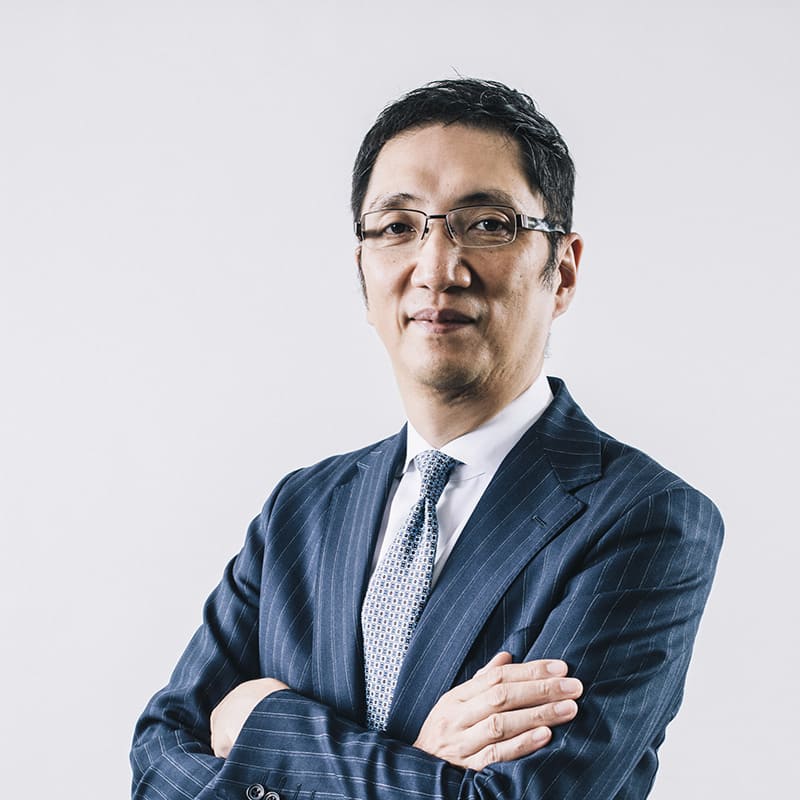
At the request of the Meiji government, Mitsubishi Estate Co. started to develop the Marunouchi district in 1890. Over the following 130 years, the real estate developer has transformed the area — which encompasses Marunouchi, Otemachi and Yurakucho — into one of the world’s business centers.
With “A Love for People, A Love for the City” as its slogan, Mitsubishi Estate has taken a long-term perspective, thinking about how people live and work in the places it develops.
Recently stressing the importance of “love for the planet,” Mitsubishi Estate is conducting business with the future of the planet in mind because that is the basis for our society.
“To build a town from scratch, we need various innovative ideas, and that is what we have to deal with,” President and CEO Junichi Yoshida said in the interview. I felt the spirit of the challenge of creating innovation in his words.
Moreover, Mitsubishi Estate is actively building alliances with various business partners to seek optimum solutions. There is no doubt that its long-term vision attracts partners, making cooperation successful. I expect to see the company creating more new business values with an innovative mindset and make populations, cities and the planet more attractive. That is the way of Mitsubishi Estate’s sustainable business management.

